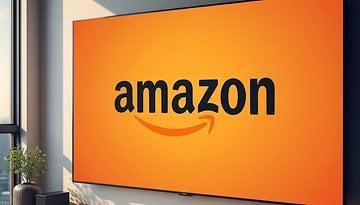Is Slow Productivity 2024's Biggest Work Hack?


Do you work with a “busy bragger”? You know the type: always frantic, always up to their eyes, always doing the very most. And always, always telling the entire office all about it.
Workers gratefully forgot about these sorts of colleagues during the pandemic, when remote work had the handy knock-on effect of muting them. But with return-to-office mandates now in full effect, many employees can’t help but interact with their office’s busy bragger once more.
The bragger may talk at length in meetings about what they’re doing, how they are doing it, and how long it is taking. But while those on the receiving end may end up tuning them out, something bigger may be at play.
3 software roles hiring now
- Software Developer (Systems Software), Cohere Technology Group LLC, Bethesda
- Software Developer, Oracle, United States
- Software Engineer, SAIC, Chantilly
A recent Pew Research Center study found that 49% of employed adults say they are not satisfied with their job overall, and 38% say that they feel their contributions at work aren’t that well valued.
With anxieties mounting over the sheer number of jobs lost across the global tech industry and fears over the cost of living. It’s not too difficult to see why some people may feel the need to let the wider workforce know how valuable they are.
It’s annoying, sure, but a growing number of workers are abandoning the idea of busyness altogether. Instead, they are leaning into “slow productivity”.
This is a direct response to the hustle culture so beloved by the office busy bragger. Workers have taken a look at the extreme push around working harder to get ahead, and have found it wanting. In fact, this way of working often comes at the expense of self-care, not to mention a person’s mental and physical health.
Top barrier to productivity
Many employees find that trying to get their actual job done can be a big challenge. Altassian, which makes productivity and project management software such as Trello and Jira, says that meetings are the number one barrier to productivity.
A recent study conducted by the company found that meetings are ineffective 72% of the time. There are a number of reasons why, and they include the fact that most people don’t get any input, with the same voices dominating meeting after meeting.
Meetings often have no defined purpose or agenda and ultimately, could have been either a phone call or an email. As a result, 78% say that due to the level of meetings they are expected to attend, it’s hard to get their work done.
And with 76% agreeing they feel drained on days when they have a lot of meetings, and 54% of knowledge workers saying that meetings dictate the structure of each day instead of their actual “real work”, anti-productivity sentiment is entering the chat.
But slow productivity isn’t about doing nothing. Rather, it is “a philosophy for organizing knowledge work efforts in a sustainable and meaningful manner,” according to Cal Newport, author of Slow Productivity: The Lost Art of Accomplishment Without Burnout, a leading book on the subject.
3 tech jobs to apply for now
- Software Engineer, Prudential, Newark ($83,000 - $123,400)
- Special Agent: Cybersecurity/Technology Background, Federal Bureau of Investigation, San Antonio ($81,000-$129,000)
- Associate Principal, Database Administration, Options Clearing Corporation, Chicago
Newport argues for work where we do fewer things, work at a natural pace, and obsess over quality. For many people that sounds like a welcome idea, but how can it work in practice?
Meeting overload is just one aspect. Learning to prioritize is another. When workers are pulled from task to task, it can be really difficult to accomplish anything, leading to 51% of Altassian’s respondents working overtime at least a few days a week.
Setting priorities can help. Start by identifying your most important tasks and get them done first. Look at what’s not in your direct wheelhouse and delegate it if you can. Assess project deadlines too: based on previous work, are these realistic, or can you build in additional time?
And look at the time of year: Summer often represents a chance to extend deadlines because people tend to take time off, so it can take longer to get things across the line. If you’re looking to embrace slow productivity, this can be the perfect time to start.
Looking for your next opportunity? Head to the nextpit Job Board today. This article was written by Kirstie McDermott.













